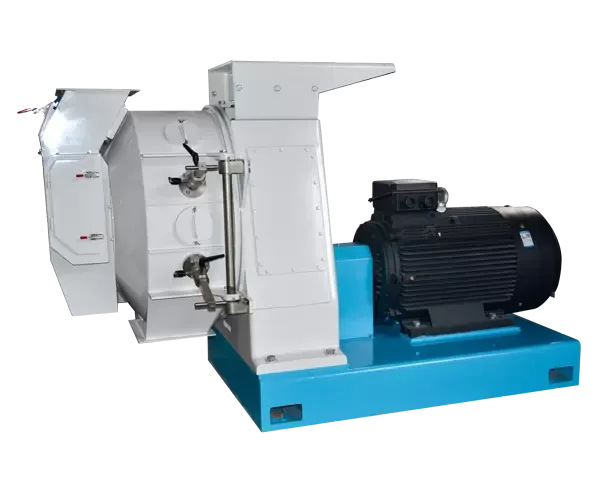In the development process of modern animal husbandry, the quality of feed directly affects the growth efficiency and health status of animals. With the advancement of technology, feed pellet mill has become an indispensable equipment in the pelletizing process. A high-quality feed pellet mill can not only improve the nutritional value of feed, but also improve the efficiency of the entire production process. Therefore, it is particularly important to choose a reliable feed pellet mill supplier. This article will elaborate on the various factors that need to be considered during the selection process to help buyers make informed decisions.

First of all, understanding the supplier's credibility and reputation is an important step in choosing a quality supplier. You can learn about other customers' evaluations and feedback about the supplier by checking the supplier's official website, online forums, social media and other channels. If the supplier has a good reputation and reputation, then it is likely that the products and services they provide are also of high quality.
The next thing to consider is the quality and performance of the product. The quality of feed pellet mill is directly related to the stable operation of future production and the quality of finished products. Carefully examine the machine's materials, construction, durability, and granulation effect. A high-quality feed pellet mill should have uniform pelletizing capacity, high output and low energy consumption, and be easy to operate and maintain. In addition, suppliers should provide comprehensive technical support and customer service so that problems encountered during use can be solved in a timely manner.
The third factor to consider is the feed pellet mill price. Price is often one of the important factors when deciding to purchase, but cost-effectiveness cannot be ignored when considering price. Compare quotes from different suppliers and compare their product performance and service offerings. A reasonable and transparent quotation should include the price of the machine, transportation costs, installation and commissioning costs, and possible after-sales maintenance costs. Remember, the cheapest option is not necessarily the best, and investing in higher quality equipment will often provide better returns in the long run.
Fourth, it is also very important to examine the supplier’s customization capabilities. Different livestock farms have their own unique needs, and the ability to provide customized solutions reflects the professionalism of the supplier. From the special design of the machine to the overall planning of the production line, a professional supplier should be able to provide personalized services according to the customer's specific requirements.
Fifth, the supplier's technological innovation capabilities are also an important reference point. In a rapidly developing market, only suppliers who continue to innovate can keep up with the times. Ask suppliers about new product development and find out whether they continue to invest in research and development activities and whether they use the latest technologies and materials.
Sixth, the quality of after-sales service cannot be ignored. Good after-sales service can ensure long-term stable operation of equipment and reduce unexpected downtime. Understand whether the supplier's service team is professional, whether the service outlets are extensive, whether the repair response is rapid, and whether the supply of spare parts is sufficient.
Seventh, we must pay attention to the environmental protection responsibilities of suppliers. High-quality suppliers not only care about product quality, but also pay attention to the environmental impact of the production process. Inquire whether suppliers follow the principles of sustainable development and whether their products meet environmental standards.
Finally, conducting a field trip is a very necessary step. Visiting the feed pellet mill production plant on-site allows you to visually inspect its production conditions, process flow, and employee work attitudes. At the same time, this is also an effective means to verify the authenticity of the information provided by suppliers.
As a feed pellet mill enterprise, we have a professional R&D team and after-sales service team dedicated to providing customers with high-quality intelligent equipment and complete engineering solutions. At the same time, the company adheres to the concept of green environmental protection and is committed to developing environmentally friendly machinery and equipment to contribute to the realization of sustainable development.
In summary, choosing a feed pellet mill supplier is a multi-dimensional decision-making process that involves comprehensive consideration of supplier reputation, product quality, price, customization capabilities, technological innovation, after-sales service, and environmental responsibility. Through detailed analysis and comparison of the above steps, buyers will be able to find the best partner to meet their needs and lay a solid foundation for the prosperity of their livestock business.